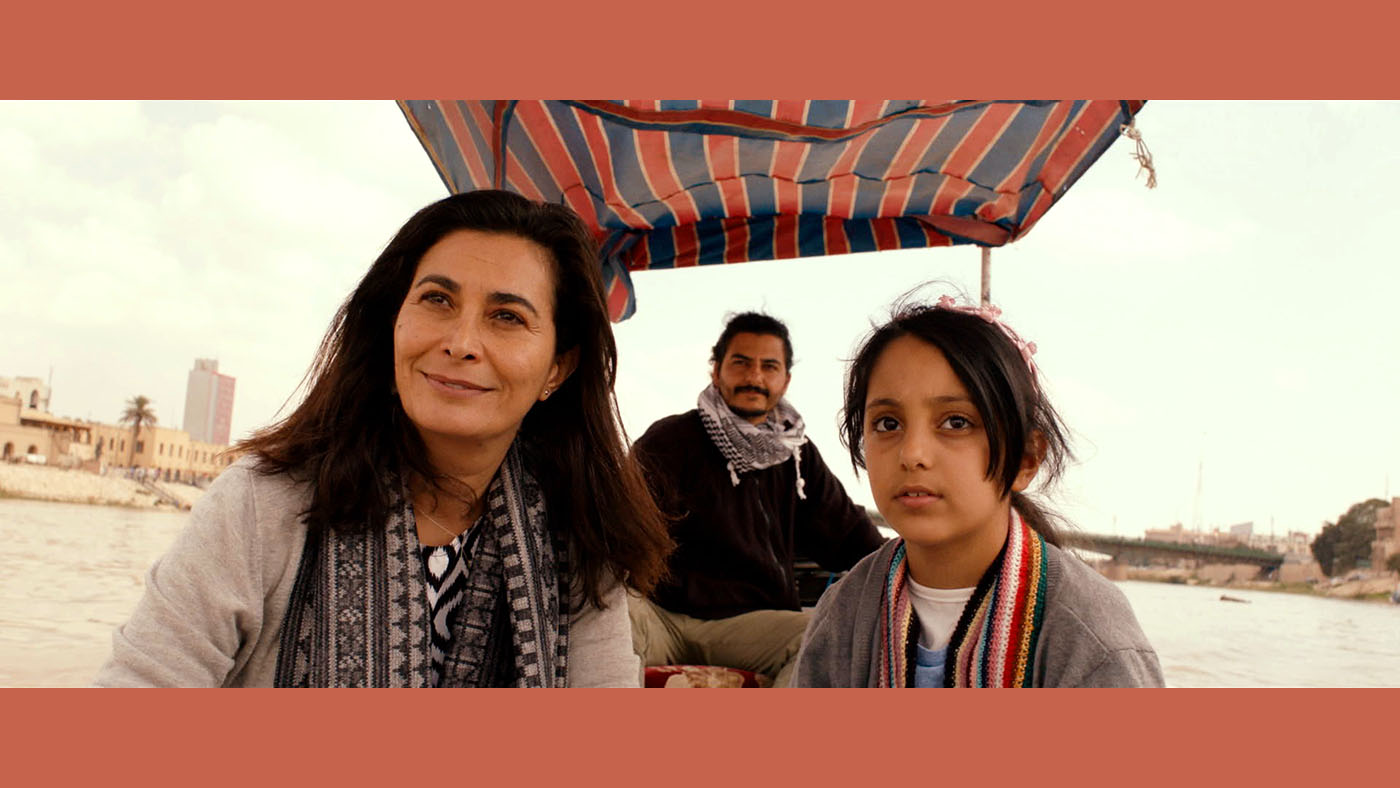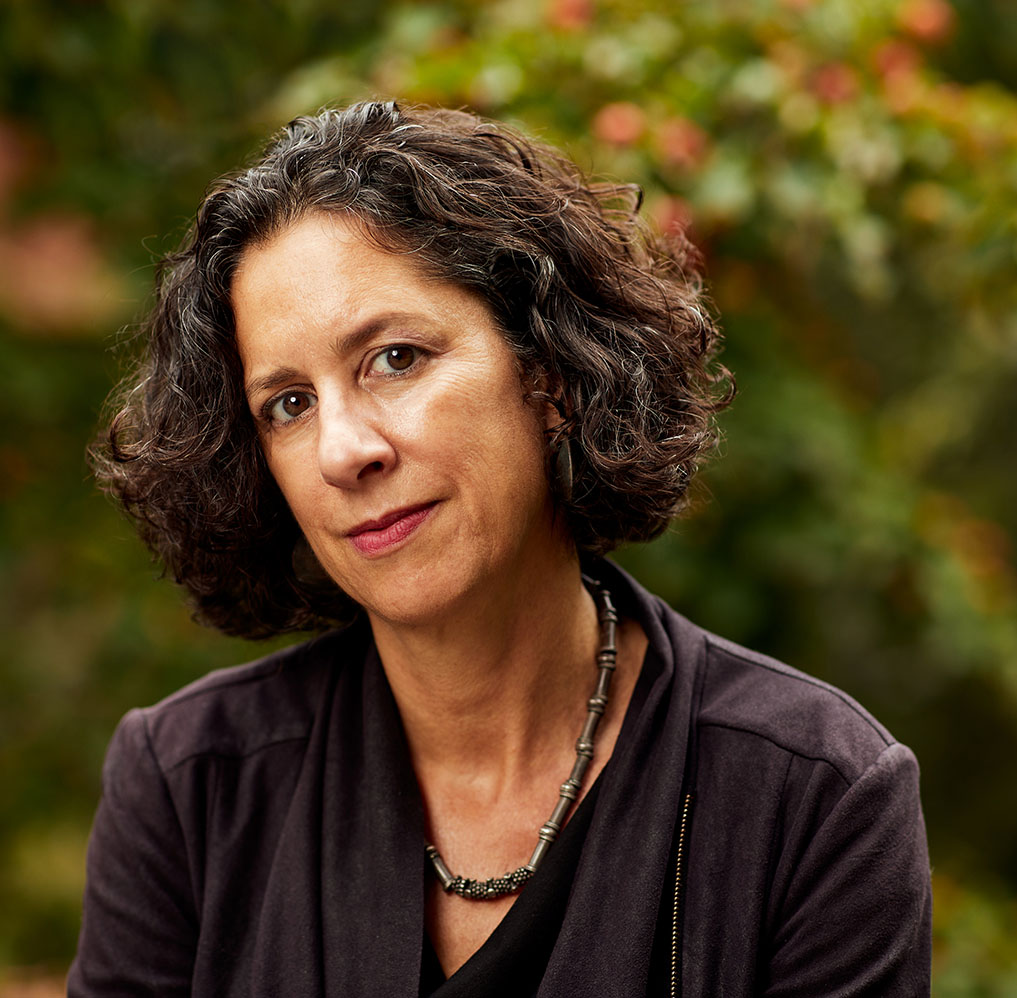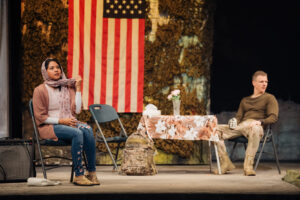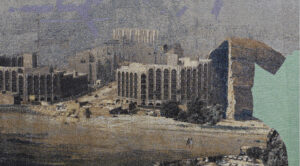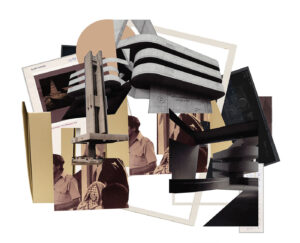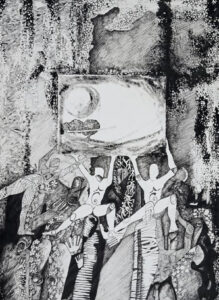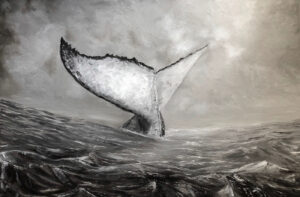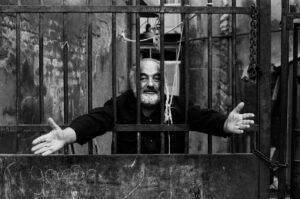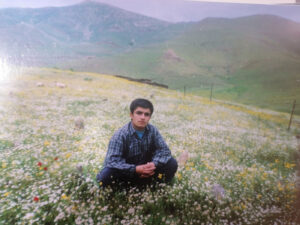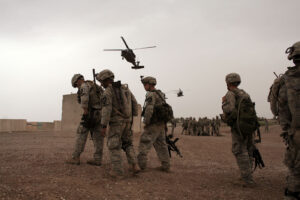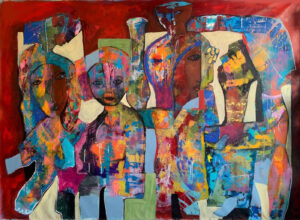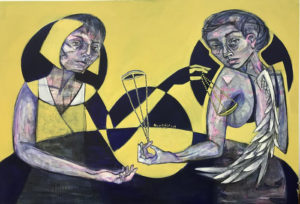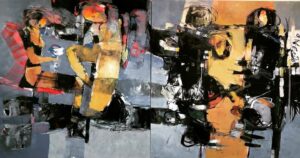Screenings of Our River…Our Sky will be happening on June 1 & 6 in Egypt as part of Cairo Cinema Daysprogrammed by Zawya, and on June 29 in Germany within the rubric of “Change of perspective – Children photograph their Iraq” — an exhibition in Berlin of GIZ (German Society for International Cooperation) in cooperation with ALFILM Arab Film Festival Berlin.
Nadje Al-Ali
To watch scenes of horror and human despair unfold in real-time 2022 with the Russian invasion of Ukraine is to get a sense of the difficult everyday struggles Ukrainian soldiers and civilians face. The global media humanizes Ukrainians who are described as complex actors resisting the Russian atrocities in creative and heroic ways. Current coverage of the war in Ukraine is easily distinguishable from the way the occupation of Iraq and the subsequent sectarian war were reported by western media and the movie industry in the aftermath of the US-led invasion in 2003.
If it was criticized at all, one of the most famous Hollywood depictions of the war in Iraq, Kathryn Bigelow’s Oscar-winning The Hurt Locker (2008), was only challenged by some Iraq War veterans for supposedly disrespecting the U.S. military. The lightweight public controversy in the US revolved around the film’s allegedly inaccurate portrayal of disobedient soldiers going rogue. Yet beyond the US borders, many disliked the movie for its problematic representation of Iraqis who were either depicted as an undifferentiated mass of spectators or evil villains. Iraqi women, while not shown to be terrorist or criminals, are represented as passive wailing victims. Earlier, Nick Broomfield’s Battle for Haditha (2007) visually and thematically engaged Iraqi civilians with far more empathy and humanity, but even here they were largely relegated to the perimeters of plot line, action and vision.
London-based British Iraqi filmmaker Maysoon Pachachi’s most recent film Our River…Our Sky (2021) offers a drastically different representation of the Iraq war: her powerful and moving creative intervention, co-written with Irada Al-Jubori, a Baghdad-based novelist and poet, puts everyday experiences of the war at its center. In many ways, the film is an extension of Pachachi’s long-standing commitment to highlight experiences of ordinary Iraqis, especially women. It is in the context of anti-sanctions and anti-war activism that we met in the 1990s, and co-founded an organization called Act Together: Women’s Action for Iraq as a way to highlight both the specific plight of Iraqi women in light of dictatorship, sanctions and war, but also to support their agency and various forms of resistance.
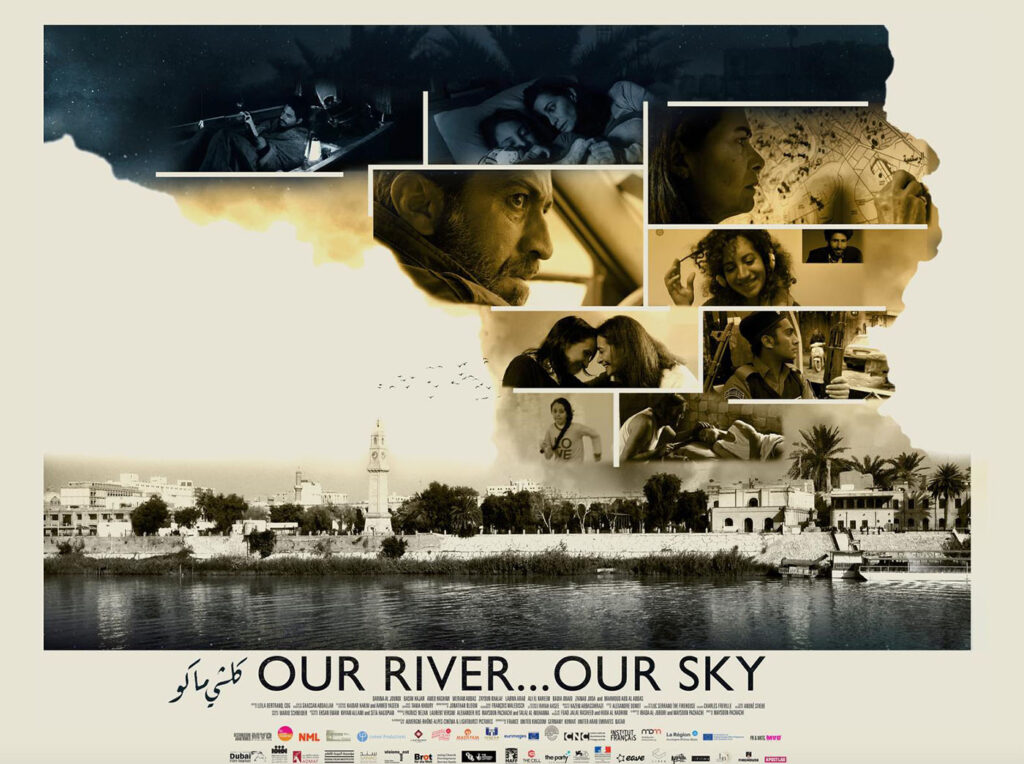 Our River…Our Sky is set in a mixed Baghdadi neighborhood — mixed both in terms of religious denominations and ethnic backgrounds. Here ordinary Iraqis are shown trying to pursue their everyday lives, their friendships, as well as romantic and family relationships in the midst of violence, chaos and the multitudes of danger linked to the sectarian war following the invasion of Iraq.
Our River…Our Sky is set in a mixed Baghdadi neighborhood — mixed both in terms of religious denominations and ethnic backgrounds. Here ordinary Iraqis are shown trying to pursue their everyday lives, their friendships, as well as romantic and family relationships in the midst of violence, chaos and the multitudes of danger linked to the sectarian war following the invasion of Iraq.
Individual stories of the main characters in the movie intersect during a period of extreme sectarian violence, nightly curfews, explosions and kidnappings. The context of the film is the last week of 2006, the week between Christmas and Islamic Eid. The individual stories are woven together to make a collective narrative of survival, of love, hope and creative resistance in the face of suffering and hardship. As Pachachi stresses, the women and men, and even children, portrayed in the film, are not just victims but people with agency, with ambitions and dreams. Confronted with everyday violence and trauma, they retain their sense of self, humanity, their hope, and even an enormous dose of humor.
One of the main characters, a novelist named Sara (played by the wonderful Darina Al Joundi), is unable to write anymore because everything she would write would be a lie: Sara finds it impossible to find the words to accurately describe the horrors and trauma of the war. Instead, she compulsively searches the Internet for the numbers of dead Iraqis. Yet, even while obsessing about the dead, Sara is at the heart of her community. Her warmth permeates not only her loving relationship with her young daughter Rima (played by Zainab Joda) but also all her friendships and interactions with neighbors, food vendors, and even strangers.
Whether to stay in war-torn Iraq or to leave it behind is a question asked by several of the characters confronted with growing corruption, different threats, traumas, daily explosions and death tolls. There is not an easy answer or single solution to this dilemma, but it becomes clear that everyone portrayed is closely attached to their community, their neighborhood and the people they live with and relate to. Nine-year-old Rima, the engaging child who perhaps represents the film’s hope for the future, finds the idea of leaving Iraq unimaginable. Previously known as Another Day in Baghdad, the film’s new title, Our River…Our Sky, expresses people’s attachment to the river Tigris, the heart and soul of the city and a wider refusal to be dispossessed by war and violence.



